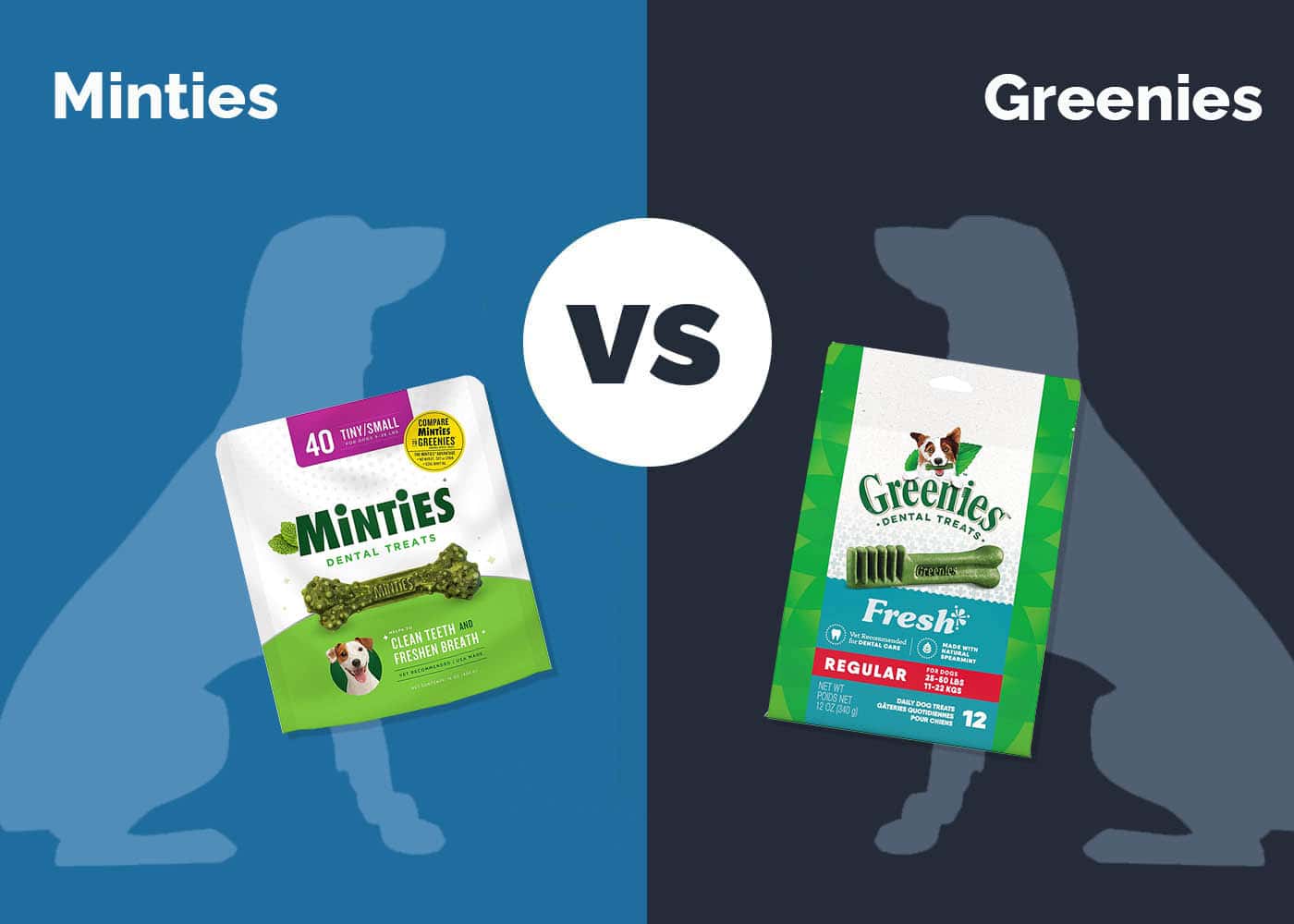AKC vs CKC vs UKC Breed Registries: What’s the Difference?

Updated on

If you’re planning to go through the expense and hassle of purchasing a purebred dog, it makes sense to register him as such. After all, what’s the point of investing in such a regal animal if you can’t brag about his bloodline?
However, once you go to register your pup you might be in for a rude awakening. It turns out there’s more than one breed registry out there; there are three major ones, in fact. What’s the difference between them? And which one is the best?
In the article below, we’ll walk you through the difference and help you to make an informed choice. After all, there’s nothing more embarrassing for a dog than finding out he’s listed on an inferior registry.
American Kennel Club
The most well-known of all breed registries (in large part due to the big dog shows they put on every year), the American Kennel Club (AKC) is also the most influential. It has strict admission requirements, and being listed with them is quite the honor.
History of the AKC
As you might expect, the AKC was born out of vanity — organized vanity, to be exact.
In the late 19th century, many wealthy dog owners became obsessed with the beauty of their animals. This led to the forming of the Westminster Kennel Club Dog Show, which is basically a glorified beauty pageant for dogs. It was designed to celebrate the traits of purebred dogs — but squabbles soon erupted over what those traits were, exactly, and which dogs qualified as “purebred.”
This need for a regulatory body led to the founding of the AKC in 1884. It was created by an association of American and Canadian breeders, but the Americans soon kicked the Canadians out and refused to let them participate. Luckily, in the early 20th century the groups set aside their differences before we had a sequel to the War of 1812.
Today, the group runs several large dog shows as well as purebred field trials, and they also administer Canine Good Citizen tests.
Getting Registered with the AKC
As you might expect of a group that once kicked out Canadians, the AKC can be horribly picky about who they associate with, and that extends to the dogs they’re willing to register.
To be eligible for registration, the dog’s parents must both already be registered with the AKC, and his entire litter needs to be registered as well. The pup has to be the same breed as both parents as well, which can sometimes cause issues if the dog came from a backyard breeder.
In some cases, DNA testing is required to prove a dog’s identity (because you can’t trust a dog not to have a fake ID, apparently).

Benefits of AKC Registration
Given that you have to jump through so many hoops to have your dog recognized, the benefits must be pretty amazing, right? You must get front-of-the-line passes for Disneyland or a credit card with no limit — or at the very least you should learn a secret handshake.
Sadly, none of that is true. All you get is a certificate recognizing your dog’s purebred status, as well as the ability to enter dog shows if you so choose. There is one cool feature that registration comes with, though, and that’s the ability to trace your dog’s lineage back for several generations.
AKC registration is largely used by breeders as a marketing tool, as it allows them to jack up their prices. However, registration is fairly cheap — less than $100 for a single dog. This is due to the fact that the AKC is the only non-profit registry currently available.
Continental Kennel Club
The Continental Kennel Club, or CKC (not to be confused with the Canadian Kennel Club), is much younger than the AKC, as it dates back to only the early 1990s. Despite this, they offer many of the same resources including record-keeping, pedigree services, and registrations as well as some services that are uniquely their own.
History of the CKC
Since opening its doors in 1991, the Continental Kennel Club has been an inclusive all-breed, open registry. While they have a similar breed registry as other clubs, they’ve welcomed new breeds and evolving dog linages, making it one of the easiest to join. One of their main objectives has always been to maintain breed health and to diversify dog genetics by supporting safe breeding practices, sometimes neglected or overlooked by purebred pedigree dog breeders.
The CKC standards differ from other clubs in the industry as well. The organization is controlled solely by the CKC rather than one specific breed group. Their standards were created to be inclusive and consider each breed’s health and quality of life above all else. Promoting healthy breeding practices and safe alternatives to breeding extremes is a primary consideration for the CKC.
Getting Registered with the CKC
There are quite a few options when it comes to registering a puppy or dog with CKC, most requiring proof that they are purebred. Many of their applicants have CKC-registered parents, are pedigreed, or are also registered with another organization such as AKC or UKC. The CKC also recognizes a lot more dog breeds than the AKC does — three times more, to be exact.
There are three registration options if your dog has existing papers from another organization or if their parents are already registered. Two options are available to dogs with lost papers or unknown origins.
Dogs who have lost their purebred paperwork can apply through their Picture & Witness Program (PAW) and if approved, contribute crucial genetic information to shrinking dog gene pools. While dogs registered through PAW may not have a full pedigree, they are considered foundation animals and ensure important generic information is filtered back into the breeds registry, consistent with CKC’s mission of maintaining a diverse genetic population for a wide variety of breeds. However, not all dogs who apply through PAW are accepted, there is a series of conditions required to verify a dog’s identity. Finally, a breed specialist with no less than twenty years of experience will evaluate and rate the applicant, which will then determine their eligibility.
Regardless of your situation, the CKC has a registration right for you and your dog.

Benefits of CKC Registration
The CKC also runs dog shows, and they’re not as prestigious as those put on by the AKC, but that’s the way they were intended! The Continental Kennel Club has crafted its dog shows to be family-oriented and aims to welcome anyone who has a dog and loves to celebrate them. Another perk of registering with the CKC is that it provides you with additional proof of ownership for your dog, and you are offered discounts on dog supplies through many of their corporate partners.
United Kennel Club
The United Kennel Club (UKC) is an international version of the AKC, although it’s run on a for-profit basis. Rather than putting on dog shows, however, the UKC is more concerned with competitive events like agility trials, weight pulls, and obedience contests.
History of the UKC
The UKC was founded in 1898 by a man named Chauncey Z. Bennett. Bennett felt that the AKC was too posh and hoity-toity, and he wanted a dog club that was accessible to the common man.
Since he felt that dogs owned by rich people were often coddled, he believed that being able to perform feats of physical prowess was as important as looking the part. The club placed an emphasis on “the total dog” rather than focusing merely on physical appearance.
The UKC originally only recognized bully breeds, although they now list over 300 breeds of all shapes and sizes. They’ll even register dogs that the AKC snubs, like the American Bulldog and American Pit Bull Terrier.
Getting Registered with the UKC
The registration requirements vary by breed and are different if you’re registering a single dog or an entire litter. However, you can expect to have to mail in paperwork and a $50 fee (of which $35 will be returned if your pup is rejected).
Like with the CKC, you’ll have to submit photos if your dog doesn’t have any proof of pedigree. However, the UKC will work with you if they feel your dog qualifies for a breed other than the one you applied under.

Benefits of UKC Registration
The UKC is a middle-of-the-road registry, as getting listed with them is more prestigious than the CKC but less so than the AKC. Still, it can potentially raise the value of a litter of pups by a decent amount.
Beyond that, getting registered with the UKC allows you to enter any of their competitive events, many of which are much more fun than your typical dog show.
Which is Best?
If you’re wanting to register a purebred dog, the American Kennel Club is your best bet. It’s also the most discriminating, but that’s a big reason why it’s the top option out there. The Continental Kennel Club is a great option for those who are looking for a welcoming and inclusive club. The United Kennel Club is a reputable compromise as well.
Of course, unless you’re a breeder or fanatical about a particular breed, it’s worth wondering whether you should go through the hassle of buying and registering a purebred dog at all. After all, shelters are full of wonderful mutts that are every bit the companion that purebreds are, even if they don’t have the snooty papers to prove it.
Plus, do you really want to deal with a dog that’s constantly bragging about who his great-grandparents were?
Featured Image Credit: lornadandy, Pixabay










